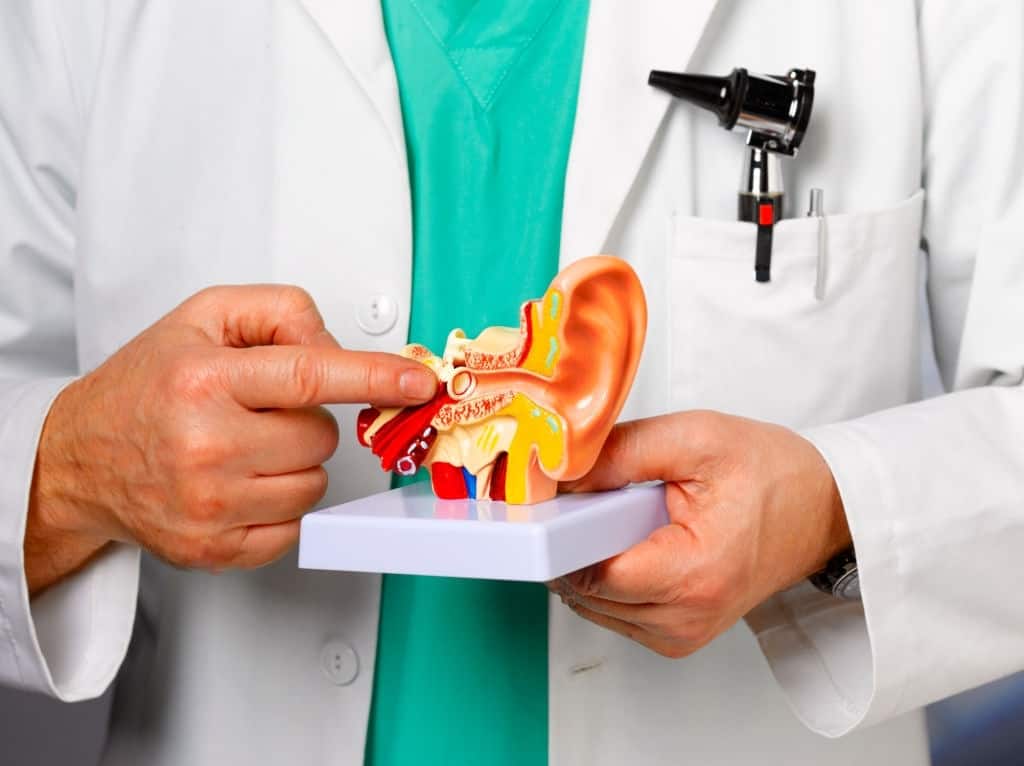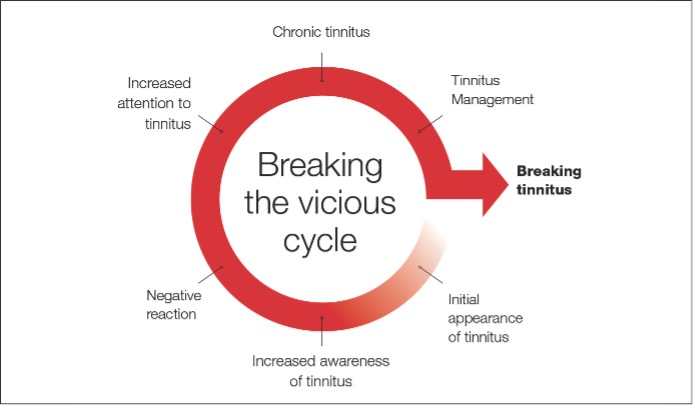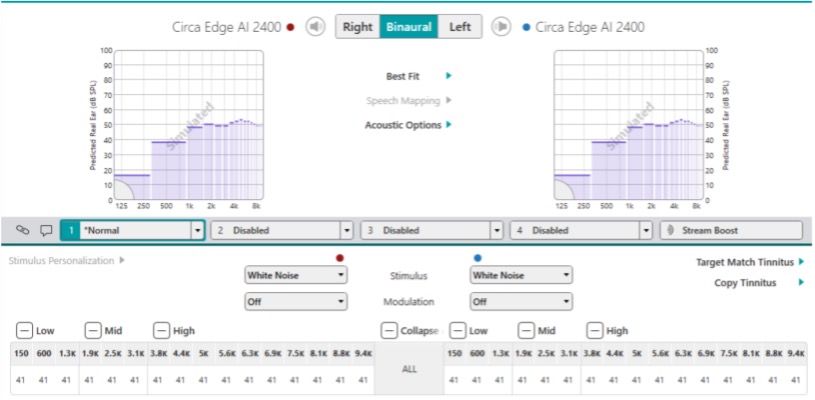
Do Hearing Aids Help Tinnitus
What is Tinnitus?
Tinnitus (pronounced ti-ni-tuhs), is defined as the perception of sound without an external acoustic source commonly referred to as “ringing in the ears” (Bauer et al., 2008). It is also known as the symptoms of sensation of hearing ringing, buzzing, hissing, clicking, whistling, or any other sounds without the presence of external sound.
Tinnitus can be heard in one ear, both ears, or in the head either temporarily, or chronic and persistent. Tinnitus is mostly harmless, but it can also indicate an early sign and symptom for other diseases such as retro cochlear disease.
Generally, tinnitus can be identified as subjective or objective. Subjective tinnitus involves noises that only the patient can perceive. According to the American Tinnitus Association (ATA), 99% of tinnitus cases are reported as being subjective.
Most people with subjective tinnitus perceive the tinnitus sound as high-pitched ringing sounds. Objective tinnitus on the other hand involves noises that are audible to not only the person suffering from tinnitus but also those around them. Usually, these sounds stem from internal body functions involving blood flow or musculoskeletal movements.
American Tinnitus Association (ATA) states objective tinnitus is rare, involving only 1% of all reported cases. Objective tinnitus is usually low-pitched and pulsated. However, the intensity (loudness) and frequencies (pitch) of the tinnitus vary and fluctuates among individuals. Usually, it will be heard louder in quieter environments or situations such as at night or in the library.
Tinnitus is a growing trend in today’s world, affecting 10-15% of the overall population. The American Tinnitus Association (ATA) notes if you are a senior citizen, military personnel, a person who works in a loud environment, musicians, or motorsports and hunting enthusiasts, you are at high-risk for tinnitus.
A 2016 report confirmed that tinnitus is a growing concern for teens and young people while predicting it will get worse thanks to “risky listening habits” like blaring music through headphones. Certain ototoxic medications or supplement intake, stress, head and neck injury, ear infections, and high-frequency hearing loss are other triggering factors for tinnitus.
You are encouraged to visit the Ear Nose Throat (ENT) doctor if you start to have tinnitus as this could also be the underlying symptom for any other health problems. ENT doctors will do the full assessment to find the root of the problem before suggesting a suitable treatment to reduce the tinnitus level.
Yes, the tinnitus is incurable in most cases but can be reduced to manageable levels. Most people become accustomed to it and learn to tune it out. Ignoring it rather than focusing on it can provide relief.
Tinnitus Vicious Cycle
Tinnitus has a very unique way of how it “attacks” humans. The more attention is given to it, the louder the tinnitus can be heard. This is what we call a Vicious Cycle. A vicious cycle (also known as a vicious circle) is when a chain of negative events reinforces itself.
When tinnitus is perceived, people will tend to have constant attention to the sound. This constant attention will slowly prompt emotions, including frustration, fear, unhappiness, annoyance and anger. These can, in turn, cause physical reactions such as stress, problems with sleeping, and anxiety or depression. All of these will eventually trigger the tinnitus to get severe.

Since stress and anxiety can make tinnitus worse, it is important to manage these conditions in order to not aggravate your tinnitus.
Break the tinnitus cycle by controlling your emotions or how you react to the tinnitus, getting enough sleep, quitting smoking and plenty of exercises is good for your overall health and good for fighting tinnitus.
Hearing Aid and Sound Therapy (Masker)
Hearing Aid with Sound Therapy (masker) is one of the best options that can help to break the vicious cycle by introducing a sound stimulus to your hearing to overshadow the tinnitus sound, or in other words, mask the tinnitus sound.
This will provide a calming effect and eventually reduce the tinnitus level. As we know, a hearing aid functions to amplify the surrounding sounds, thus suitable to mask the tinnitus caused by hearing loss and brain deprivation.
Normally, background neurological activity in the brain is covered up by everyday sounds. However, when someone is diagnosed with hearing loss, there will be less sound stimulation sent to the brain. The brain that didn’t receive enough sound stimulation can be “lonely” and deprived.
These neurological changes may then perceive to be more noticeable and disturbing. Hence that is why people hear the ringing sound, but feels like it is coming from inside their head.

Multiflex Tinnitus Masker from NuEar hearing aid is the best masker available in the market. It uses white noise (comprised of equal energy distribution across frequencies) and can be customized precisely based on your tinnitus intensity and pitch level.
This is important as the masker shouldn’t be too loud as it may trigger the tinnitus to get louder, or too low which has no benefit to the user.
Well-trained Audiologists and Hearing Care Professionals should be able to do Tinnitus Loudness Matching, Tinnitus Pitch Matching and Uncomfortable Loudness Test. These are really important tests to determine the most accurate masker introduced to your ear.
With the advancement in hearing aid technology and connectivity, NuEar hearing aids are capable to be connected directly to the smart phone. Via Trulink Apps and Thrive Hearing Control App, users are able to adjust tinnitus stimulus volume and speed (modulation) easily in any memory environment.
This is more practical as tinnitus may not always manifest itself at the same volume each time, so users may personalize tinnitus stimulus and manually adjust the them as needed.
Summary
As a summary, tinnitus is a symptom that shouldn’t be neglected and need to be treated and well managed by the right professional with the right method. The most important thing is depending on how you can cope and motivate yourself to fight tinnitus.
Audiologists and Hearing Care Professionals in The Hearing Solution Company (THSC) are always ready to help you through your tinnitus journey. You may visit any THSC outlet for tinnitus testing and for trial of Hearing Aid with Masker.
Reference:
- https://www.medicalnewstoday.com/articles/156286#treatment
- https://www.ata.org/understanding-facts/demographics
- https://www.hearingreview.com/practice-building/practice-management/how-to-establish-a-successful-tinnitus-clinic2
- https://www.starkey.com/blog/articles/2015/11/Multiflex-Tinnitus-Technology
- https://www.sciencedirect.com/topics/neuroscience/tinnitus
- Berthold Langguth, Dirk De Ridder (2013). Chapter 36 - Tinnitus: therapeutic use of superficial brain stimulation in Handbook of Clinical Neurology, 116, 441-447
- Terry D.Fife (2003). Tinnitus in Encyclopedia of the Neurological Sciences, 541-544.

 Find Us
Find Us